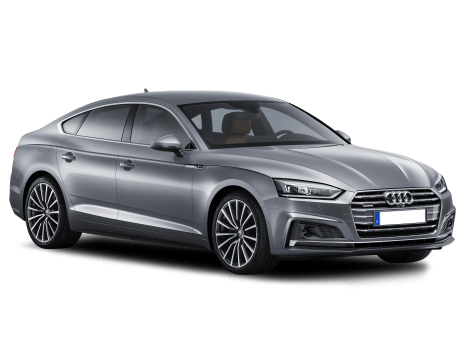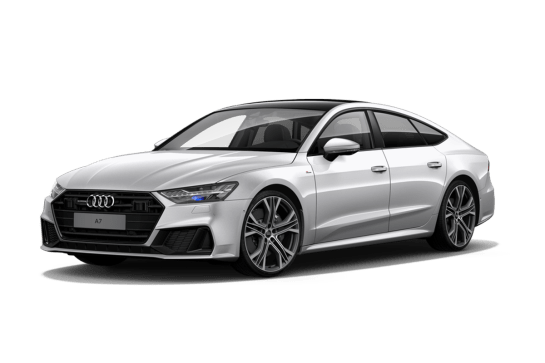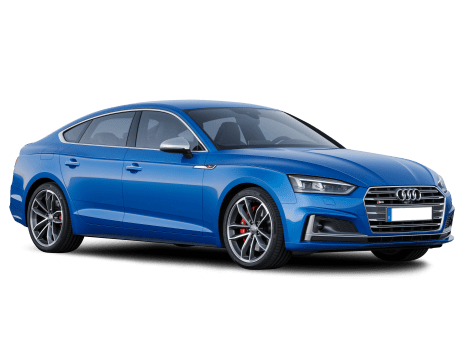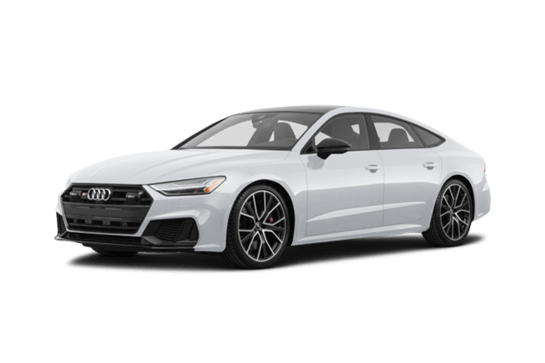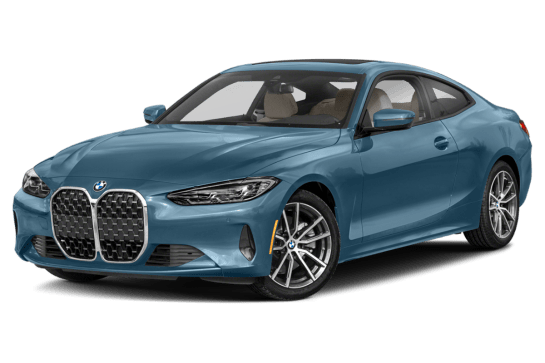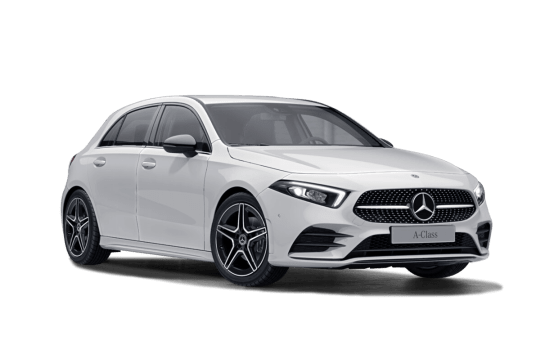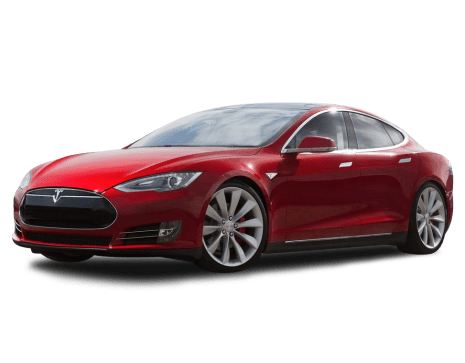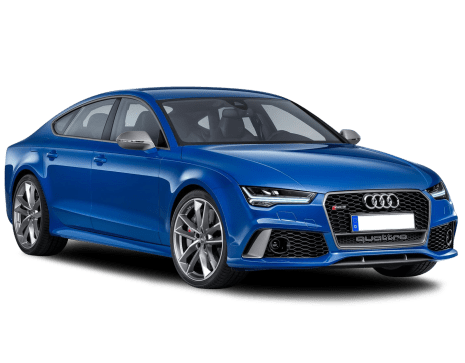
Audi RS7 VS BMW 4 series
Audi RS7
Likes
- A V8 with 800Nm? Yes please
- Hatchback practicality
- Standard air suspension
Dislikes
- Limited rear headroom
- Rear legroom could be better
- Cabin storage isn't great
BMW 4 series
Likes
- Great tech
- Terrific to drive
- Reasonable servicing
Dislikes
- A bit pricey
- Tight rear seats
- Needs more safety gear
Summary
Audi RS7
If you’re looking for a sedan version of the RS 6 Avant, then you’ve come to the right place – sort of. See there is no RS 6 Sedan, but the RS 7 Sportback is the next best thing – you may even find it an even better thing because not only does it share RS 6 Avant’s outrageous engine and high-performance hardware, it’s also a sedan …but with a hatchback.
And if that kind of thing makes you happy, sit down – because the new generation RS 7 Sportback has just landed.
| Safety rating | |
|---|---|
| Engine Type | 4.0L turbo |
| Fuel Type | Hybrid with Premium Unleaded |
| Fuel Efficiency | 11.6L/100km |
| Seating | 5 seats |
BMW 4 series
BMW's new 4 Series blasted onto the world stage with a chonky schnozz on it that only a mother could love. If BMW didn't want anyone to look at the rest of the car, it did a cracking job of it, because everyone had something to say about the big gnashers now grafted to the 4's front end.
I was nervous about it, too, because the 4 Series has always been so elegant and the current 3 Series - on which it is based - is quite nice to look at. It also threatened to overshadow just how good a car the BMW 4 should be, based as it is on the excellent 3 Series.
And, of course, one also had to wonder if a sports coupe like this would be any good around town. Limited vision? Hard to get in and out of? A true four-seater, or just a squishy 2+2? So many questions.
| Safety rating | |
|---|---|
| Engine Type | 2.0L turbo |
| Fuel Type | Premium Unleaded Petrol |
| Fuel Efficiency | 6.4L/100km |
| Seating | 4 seats |
Verdict
Audi RS77.9/10
The new-generation RS 7 Sportback heralds the further evolution of this large majestic beast, with more features, a beautifully finished cabin and with more grunt with the looks to match. You’d be hard-pressed to find a better combination of power, dynamics and comfort in the Audi range – apart from in the RS 6 Avant of course.
BMW 4 series7.8/10
The BMW 420i is a terrific car if you're after a bit of style and sophistication. Not everyone will warm to your car's nose, but if you get it de-chromed, like this white one, it really does look pretty good. It's a car that uses very little fuel, moves along smartly and is brimming with a decent amount of tech, even if it could do with a bit more safety gear at this price.
I reckon this car is settling well into the automotive landscape and ignoring it because of a few loudmouths think the grille is too big would be a terrible waste.
Design
Audi RS78/10
The big news is the RS 7 Sportback now comes with five seats. The previous generation car had just two seats in the second row. I'll talk more on practicality below but for now let's examine the new styling.
This RS 7 Sportback has new broad, black mesh grille, flanked by gigantic side air intakes, narrow headlights, and a thin upper air inlet which is a hat tip to early racing Audis.
While that new angrier, more angular and menacing face is a showstopper, everything about the new RS 7 Sportback seems to be accentuated further.
Look at the wheels. The previous generation came with 21-inch rims, now the new normal for the RS 7 are 22-inches – they're huge. Those wheel guards also flare out 20mm more than a regular A7's and the rear haunches have bulked up massively.
Come to the back of the car and the diffuser and bumper have also been beefed up. Nobody sitting behind you in traffic is going to think this is just a regular A7.
Don't expect the RS 7 Sportback's insides to be just as hardcore as its exterior. The cabin is almost identical to a regular A7's. It's a stunning cockpit dominated by a dash which protrudes back towards the passengers and houses the media screen. Anther display for climate is set into the big centre console which divides the driver and co-pilot into almost cocooned cells.
The cabin isn't without its RS touches though – there's the sports seats with honeycomb stitching, fully digital instrument cluster with RS specific meters, the RS steering wheel, the Nappa leather on the dashboard and the doors, the aluminium inlays. The level of fit and finish is up there with the best that I've seen on any production car.
The RS 7 Avant is 5009mm long, 1424mm tall and 1950mm across for a wide planted stance.
BMW 4 series
The internet exploded when it became clear the big kidney grille was for real. To be fair, BMW did itself absolutely no favours by ensuring the photos of the 4 Series made the twin grille look Easter Island statue sized.
And it persisted in doing them naked, without number plates to break up the look. In the flesh, it all works, the nose is striking but not completely overblown.
BMW coupe elegance reigns supreme in profile, however, with excellent proportions, and even in base form the wheels are the right size. The slim tail-lights and sculpted tail complete the look. It's a car I think most people love looking at. Hardly anyone mentioned the grille.
The cabin is excellent, as are all of the newer BMW interiors. It's not really a base model, given the price, but the mix of Alcantara and synthetic leather is very pleasing.
The big screens for the media and instruments headline the cabin with high-tech style and while it's not avant-garde, it's sharp and feels premium, which is just as well.
Practicality
Audi RS77/10
The previous RS 7 Sportback was a four-seater, now it has five seats. That's right, a middle seat has been added to the second row, but, as you'd expect, it's not the best place be in the RS 7 Sportback, straddling the large driveshaft and ducking under the low roof-line.
That fastback profile does mean headroom in the second row is nowhere near as good as the RS 6 Avant's, but legroom is the same and, at 191cm tall, I can just fit behind my driving position with about 10mm to spare.
Up front it's not as spacious as you might think. That stepped dash protrudes into the passenger's space, the door pockets are thin and the centre console storage under the armrest is small.
Sportbacks are more practical sedans thanks the large opening offered by the hatch. The boot's 535-litre cargo capacity is great and only about 30 litres less than what you have in the RS 6 Avant.
For phones there's a wireless charger and two USB ports in the centre console storage box, while back seat passengers have two USB ports and a 12V outlets. There's also directional air vents and dual-zone climate control in the rear, too.
BMW 4 series
As a sports coupe, it's hardly a practical all-rounder but it's not a squishy 2+2 either. The rear seats are sculpted for maximum headroom and have the added bonus of holding onto rear passengers.
Six footers won't be super-comfortable but it's bearable for short trips. There are two ISOFIX points back there, too.
The front seats electrically fold out of the way for ingress and egress, but it's not an elegant process.
Front-seat passengers score two cupholders and bottle holders in the doors and a black hole for your phone and its wireless charging pad.
The boot takes an impressive 440 litres and the rear seats split and fold like good little soldiers.
Price and features
Audi RS78/10
The Audi RS 7 Sportback lists for $224,000, which is exactly $8K more than the RS 6 Avant.
Coming standard are the enormous 22-inch alloy wheels, the matrix LED headlights with laser lights, metallic paint, a panoramic glass sunroof (which is new to the model), privacy glass, head-up display, soft-close doors and red brake calipers.
Inside there's the Bang and Olufsen 16-speaker sound system (that new, too), sat nav, the 12.3-inch virtual instrument cluster, wireless Apple CarPlay (new, as well), wireless charging, full leather upholstery with RS sport front seats that are heated and now come with ventilation as standard, and four-zone climate control.
I've left off all the standard RS mechanical equipment, but I'll cover that in the driving section below.
Is it good value? Well the Mercedes-AMG CLS 53 S is $186,435 but it has way less grunt, the Alpina B5 which I've also road-tested lists for $210,000 and there's the Porsche Panamera 4 Sport Turismo for $236,300.
BMW 4 series
The 420i starts at $71,900. That's a fair bit of money, I think you'll agree.
You get 19-inch wheels, a 10-speaker stereo, LED headlights with auto high beam, head-up display, power front seats, lighting package, auto-parking with reverse assistant, synthetic leather and Alcantara interior, 'Live Cockpit Professional' (fully digital dash), wireless phone charging and digital radio.
The massive 10.25-inch touchscreen may be smaller than the 12.3-inch digital dashboard, but it still looks huge. BMW's Operating System 7.0. is a cracking set-up, and you can control it via either touch or the 'iDrive' rotary dial on the console. It also has Apple CarPlay and Android Auto. Both of them, wireless. You don't read that every day.
You also get 'BMW ConnectedDrive', with some remote services that last for three years. The subscription includes things like the endearingly weird 'Caring Car' and the far less weird real-time traffic information.
The 4 Series is available in eight colours. 'Alpine White' is the only freebie while 'Black Sapphire', 'Arctic Race Blue', 'Portimao Blue', 'San Remo Green' and 'Mineral White' are $1538 each (or part of the 'Visibility Package'). 'Tanzanite Blue' and 'Dravit Grey' are a hefty $2962.
My car for the week had the $6300 Visibility Package (metallic paintwork, sunroof, BMW Laserlight, Ambient Light, which is worth it for the amazing Laserlights alone), the $2860 'Comfort Package' (lumbar support, electric boot, heated front seats, 'Comfort Access' with 'BMW Digital Key') and an $800 black pack. All this took the price to $81,860.
Under the bonnet
Audi RS710/10
The RS 7 may look like a large, well-mannered business class car, but think of it as a thug in a suit because this thing is a monster with a 441kW/800Nm twin-turbo petrol 4.0-litre V8.
That's almost 600 horsepower and the supercar acceleration that goes with it is brutal: we're talking 0-100km/h coming in 3.6 seconds. That also matches the RS 6 Avant and it's a tenth of a second faster than the Audi R8 V10 RWD supercar, (and also the previous-gen RS 7 Sportback Performance) and this is a large, four-door, five-seater.
Compared to the previous generation RS 7 Sportback Performance the power is down by 4kW, but torque is up by a whopping 100Nm. Give me torque over power any day.
Shifting gears is an eight-speed automatic transmission, sending the drive to all four wheels.
BMW 4 series
The 420i’s 2.0-litre turbocharged four-cylinder, codenamed B48, spins up 135kW/300Nm. Driving the rear wheels through an eight-speed ZF automatic transmission, you'll go from zip to the 100km/h mark in 7.5 seconds, which is brisk, if not staggering.
Efficiency
Audi RS76/10
This is a large, all-wheel drive car with a 600 horsepower V8, but it also has a mild hybrid system in this new generation, which will switch the engine off at let the car coast down hills or at speeds under 22km/h.
Audi says this can save up to 0.8L/100km in real-life driving. That's great news, but consumption is still fairly high with Audi saying that after a combination of open and urban roads the RS 7 Sportback will have used 11.6L/100km.
BMW 4 series
BMW's official combined-cycle figures seem to be slowly moving towards reality. The 420i's sticker figure of 6.4L/100km was met with an indicated 6.8L/100km, which was excellent going for almost exclusively suburban and urban running.
It's a solid result, but being a BMW, it's premium unleaded only for its 59-litre tank.
With my generally unsympathetic (but not psychopathic) right foot, that means a real-world range of over 800km between fills.
Driving
Audi RS79/10
I've never met an RS model that hasn't been great to drive – these cars are way more than just tough body kits and big wheels. The engineering which separates the RS 7 Sportback from the A7 makes them more distant cousins than siblings.
As I mentioned before the RS 7 Sportback and RS 6 share more than the same twin-turbo V8, there are also the giant brakes in form of 420mm discs at the front with 10 piston calipers and 370mm discs at the rear.
The optional carbon ceramic brakes are the largest ever to be fitted to a production vehicle at 440mm at the front and 370mm at the rear, saving 34kg in mass over the steel brakes.
Now standard for the first time is Audi's Dynamic Package, which adds dynamic steering (a variable ratio) paired with all-wheel steering, a sport differential, and a 280km/h top speed.
Coming standard is adaptive air suspension and for $2850 you can option the Dynamic Ride Control suspension, which is a hydraulically activated adaptive damper system
At the Australian launch, Audi supplied two RS 7 Sportbacks: one with the air suspension and the other with not only the Dynamic Ride Control system, but also the RS Dynamic Package Plus which adds the ceramic brakes and increases the top speed to 305km/h – this was the car I started off in.
I'm going to say right away that you don't need ceramic brakes for regular road use. Sure it means you can tell people that you have the biggest brakes in the world and they save you almost 35 kilos in weight, and, yes, they're resistant to fading, but they're expensive to replace and the steel ones are incredibly good.
Explore the virtual Audi RS7
I also feel the Dynamic Ride Control sports suspension isn't necessary in a car like the RS 7 Sportback. This is a Grand Tourer designed to eat up hundreds of miles at lightspeed in comfort.
So, while I found the first RS 7 Sportback with the big brakes and sports suspension sharper and firmer than the standard car, it didn't seem to fit with this vehicle's intent.
The regular RS 7 Sportback still accelerated with the same brutal force and roared at the scenery flashing past. It still handled through the tight corners superbly with excellent turn in, mind-boggling traction and grip, and excellent body control, but all in far more comfort.
This is the point – we covered hundreds of miles at the Australian launch of the RS 7 Sportback in a range of RS models, and sports suspension can go from great to gruelling on Aussie roads with their coarse-chip bitumen and potholes. The RS 7 Sportback, with its air suspension, not only made driving far more comfortable, but easier, too.
BMW 4 series
One of the main things that sets a BMW sedan or sedan-based coupe apart is that they're good everywhere, except perhaps in quicksand.
As the platform has matured and BMW's persistence with run-flat tyres has yielded improvements in tyre construction, the 3/4 Series platform (and many others - the internal name for the platform is CLAR) has once again become the benchmark for ride and handling.
For some people reading this, that's a lot of blah blah blah but the main point is, it's a terrific thing to drive whether you're dawdling along in traffic, dealing with traffic calming or bombing down your favourite deserted road.
The Bridgestone tyres on the 420i aren't as ultimately grippy and sticky as the alternative rubber on the 430i but they work well in town and are quiet on the 80km/h roads so prevalent in Sydney.
The steering is absolutely lovely, providing just the right weight at any given speed and throwing in the road feel to inspire confidence.
Ride around town is compliant but with the whiff of fun if you decide to push things outside of the city.
Its capabilities are still more than worthwhile day-to-day, however, because the way it handles the need to duck in and out of spaces in traffic is extremely handy.
The 2.0-litre four-cylinder is as smooth as rival Audi's. It doesn't sound like much (with a few vestigial pops in Sport mode) but it's certainly got the power to get you out of sticky situations and a transmission that's willing to play ball, whether in Sport or Normal.
Without the adaptive suspension of its 430i and M 440i brethren, this is a very smooth, easygoing sports coupe, with just enough sportiness to keep you interested, if you're that way inclined.
Safety
Audi RS79/10
ANCAP tested the A7 in 2018 and gave it the maximum five-star ANCAP rating, however, this rating does not apply to the RS 7 Sportback high performance model.
That said, the RS 7 Sportback is fortified with nearly every piece of advanced safety tech there is in Audi's cupboard. There's AEB which can detect and brake for cyclists and pedestrians at speeds between 5-85km/h and vehicles up to 250km/h; there's rear cross traffic alert and intersection crossing assistance with braking; lane departure warning and corrective steering to keep you in your lane, and blind spot warning.
Not a fan of parking, the RS 7 Sportback can do it by itself, or there's a 360-degree camera that'll help you do it yourself. There's an exit warning system, which will warn you if a vehicle is approaching as you go to get out, too, and if the RS 7 Sportback detects that it will be hit from behind, it will prepare the cabin by tensions the seatbelts and closing the windows, including the sunroof.
Along with all that there are Audi's new Matrix LED headlights with laser lights, rain sensing wipers and adaptive cruise control.
For child seats you'll find three top tether points and two ISOFIX mounts across the second row.
There's no spare wheel – instead, there's a tyre repair kit.
BMW 4 series
The 4 Series comes with six airbags, ABS, stability and traction controls, forward AEB, forward collision warning, lane-departure warning, reverse cross-traffic alert and reversing camera.
The 4 Series hasn't been tested by ANCAP or Euro NCAP and the 3's five-star rating can only be a guide because of the very different structure of the 4.
Sports cars rarely fare well in the sometimes complex rules so carmakers tend to keep them away from the clutches of crash testers.
Ownership
Audi RS76/10
The RS 7 Sportback is covered by Audi's three-year, unlimited kilometre warranty which not only falls behind in duration compared to mainstream brands but also its direct rival Mercedes-Benz which now has five-year, unlimited kilometre coverage.
Service intervals are every 12 months or 15,000km with a three-year plan costing $2380 and a five-year plan for $3910.
BMW 4 series
BMW offers a ho-hum length of three years and 100,000km of warranty coverage. Mercedes has gone to five years so one wonders why BMW (and Audi) hasn't joined its German rival.
Servicing is entirely reasonable at $1650 for a five-year/80,000km package that covers the 12 month/16,000km servicing regime.
At $330 per service, it includes things many carmakers don't, such as brake fluid and spark plugs.
You can go full noise with the 'Plus Package', which costs $4500 and chucks in brake pads, rotors and even windscreen-wiper replacement. That doesn't seem like terribly good value to me unless you drive like a lunatic.


